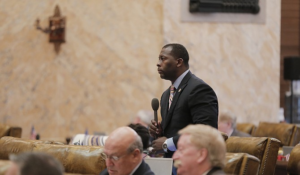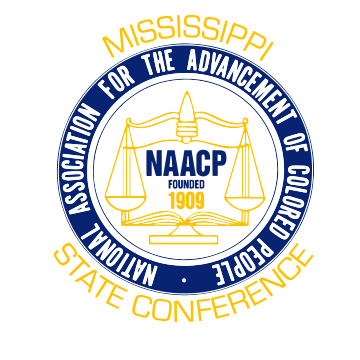Back the Badge
‘Back the Badge’ May Back Civilians into a Corner
April 6, 2017 – Last month, Mississippi’s Republican governor signed a controversial new bill manufactured to empower state law enforcement, potentially setting the stage for new, harsher sentences for people that police accuse of crimes of violence against law enforcement.
House Bill 645—which is now law—declares that “every person convicted of a crime of violence … upon a peace officer, emergency medical technician or first responder while such person is acting in his or her official capacity … shall, upon conviction … be punished by a term of imprisonment of up to three times that authorized by law for the violation, or a fine of up to three times that authorized by law for the violation, or both.”
The bill was largely supported by white legislators who claim the law exists solely to discourage violence against emergency workers or law enforcement. Attorneys who frequently defend suspects caught up in police bureaucracy, however, see it a differently.
“(The law) gives far too much latitude for (police) to interpret frustration or freedom of speech in a way that could violate the constitutional rights of individuals, just because they disagree with law enforcement,” said attorney Chokwe Antar Lumumba. “I want to see people protected in every walk of life, including law enforcement officers, but people forget that law enforcement officers are people, too. They have good and bad days, just like us.”
Lumumba, who is running for mayor of the city of Jackson, said police are human, and are therefore just as capable of misrepresenting incident accounts as any suspect, and could exaggerate police/civilian encounters to look like a crime of violence. Without proper vetting from an attentive defense team, many angry or vindictive officers’ overblown descriptions could easily reach a jury and sway it. This likelihood increases in a justice system, like Mississippi’s, that pits a woefully-inadequate public defense system against a well-funded prosecution team.
More than 10 years ago, the NAACP Legal Defense Fund (LDF) issued a report revealing how legislators’ refusal to contribute to the defense of the poor “created a system that consistently ranks among the most poorly funded in the nation.” According to the 2003 LDF report, Assembly Line Justice, inadequate indigent defense funding “[leads] to a poorly organized, patchwork system.” Since 2003, only a handful of Mississippi counties now have an office staffed by one or more full-time public defenders. Instead, most counties contract part-time defenders who have their own day jobs running private practices, or they appoint private attorneys to represent defendants on a case-by-case basis. Many of these private attorneys admit that they do not have the resources to compete with a full-time prosecution team.
Several black and Democratic lawmakers opposing the legislation during debate a few months ago referenced multiple accounts of police racial profiling black citizens.
Rep. Chris Bell, D-Jackson, hinted at bill advocates’ disingenuous police support when white lawmakers repeatedly failed to approve his amendment to the bill giving law enforcement officers a 10 percent raise. White lawmakers were also unwilling to add additional charges against police found guilty of covering up any crime against a person or persons and shot down Greenville Rep. John Hines’ amendment to do just that.
The white House majority passed the bill and voted down black lawmakers’ every attempt to amend it, including Jackson Reps. Earle Banks and Adrienne Wooten, and Belzoni Rep. Rufus Straughter—all of whom are Democrats.
The shift to further empower and embolden police officers in Mississippi follows the mood of Republican President Donald Trump, who may view the massive nationwide protests of his many discriminatory decisions as a threat to his presidency. Trump described massive marches against him in November as “Very unfair,” on Twitter, and then dismissed protestors as “professional protesters, incited by the media,” and allegedly funded by shadow groups—none of whom he has managed to unmask, despite considerable White House access to information and resources.
Trump’s White House also adopted a hardline policy against suspects targeted by police by endorsing opposition to “the dangerous anti-police atmosphere;” an atmosphere that the president has also never managed to prove exists. With his new “Standing Up for Our Law Enforcement Community” declaration, Trump proclaimed that the government’s job “is not to make life more comfortable for the rioter.” Some critics have taken that as an outright threat to protestors.
To learn more about Mississippi criminal justice bills, click here.
###
Founded in 1909, the NAACP is the nation’s oldest and largest civil rights organization. Its members throughout the United States and the world are the premier advocates for civil rights in their communities, conducting voter mobilization and monitoring equal opportunity in the public and private sectors. For more information about the Mississippi NAACP or news stories, call 601-353-8452 or log on to www.naacpms.org. Like us on Facebook by searching Mississippi NAACP and follow us on Twitter @MSNAACP.




